Science 5.2
Scientific investigation and reasoning. The student uses scientific practices during laboratory and outdoor investigations. The student is expected to:
- (1) describe, plan, and implement simple experimental
investigations testing one variable;
- (A) ask well defined questions, formulate testable hypotheses, and select and use appropriate equipment and technology;
- (B) collect and record information using detailed observations and accurate measuring;
- (C) analyze and interpret information to construct reasonable explanations from direct (observable) and indirect (inferred) evidence;
- (D) demonstrate that repeated investigations may increase the reliability of results;
- (E) communicate valid conclusions in both written and verbal forms; and
- (F) construct appropriate simple graphs, tables, maps, and charts using technology, including computers, to organize, examine, and evaluate information.
- Plus Plan
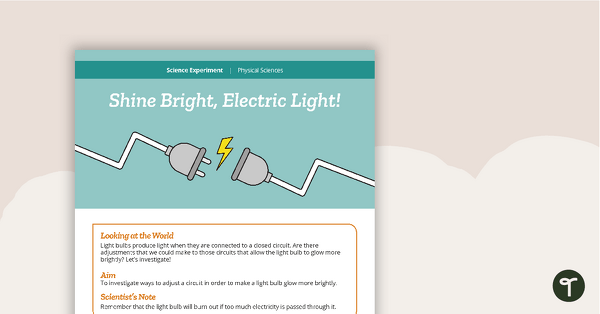
Science Experiment - Shine Bright, Electric Light!
A science experiment that investigates how changes to electrical circuits affects their components.
- Plus Plan
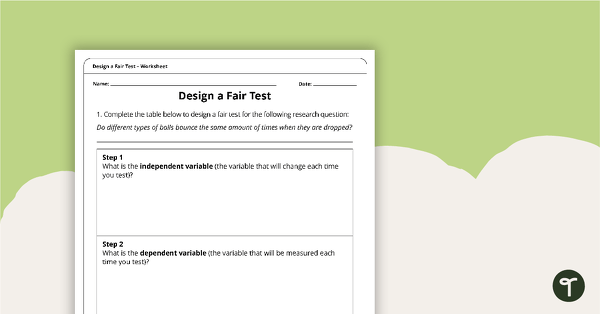
Design a Fair Test Worksheet – Upper Grades
A worksheet to use when developing the concept of a fair test.
- Plus Plan
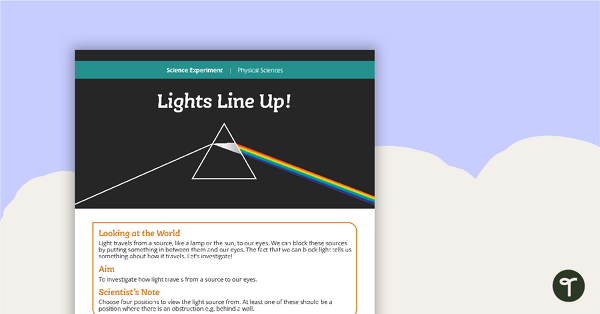
Science Experiment - Lights Line Up!
A science experiment which explores light.
- Plus Plan
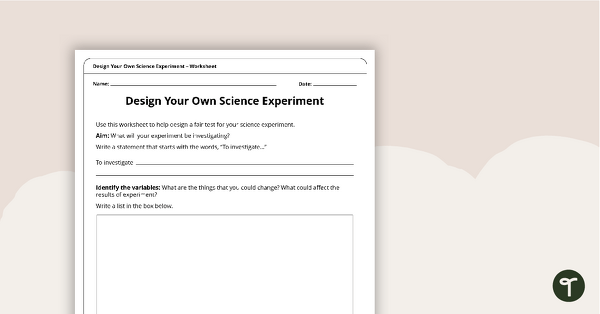
Design Your Own Experiment Worksheet
A set of worksheets to develop students' ability to design fair, scientific experiments.
- Free Plan
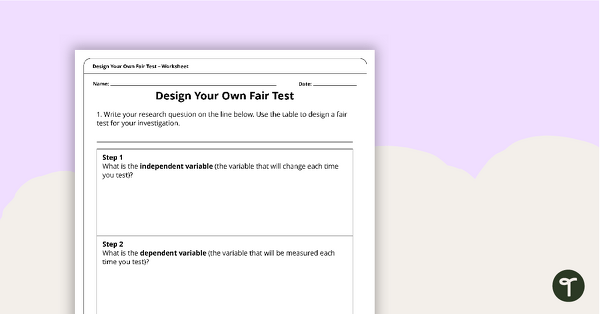
Design Your Own Fair Test Worksheet – Upper Grades
A worksheet to use when developing the concept of a fair test.
- Plus Plan
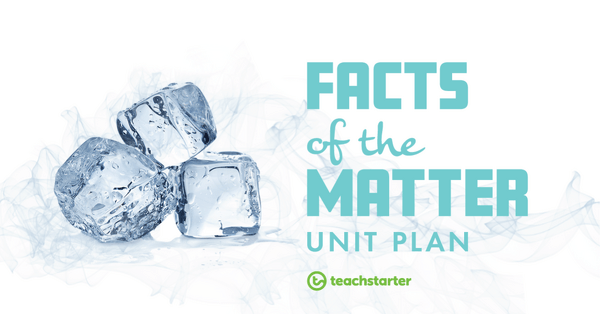
Slime - Solid, Liquid, or Gas?
A 60-minute lesson in which students will recognize that not all substances can be easily classified on the basis of their observable properties.
- Plus Plan
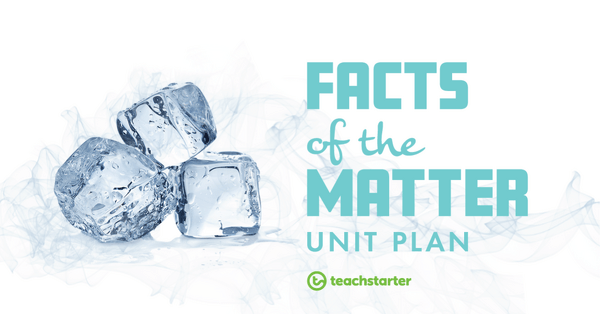
Knowing Matters!
A 60-minute lesson in which students will explore how knowledge of states of matter and their changes can help inform practices and decision making.
- Plus Plan
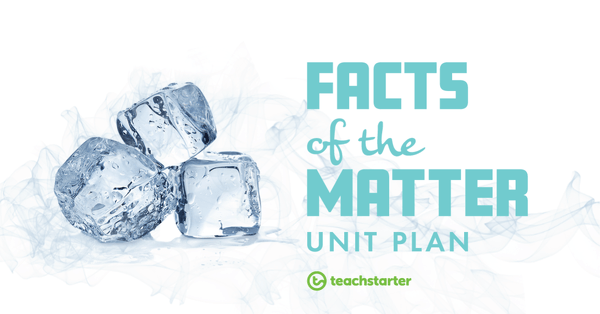
Going, Going, Gone!
A 60-minute lesson in which students will recognize that substances exist in different states depending on the temperature.
- Plus Plan
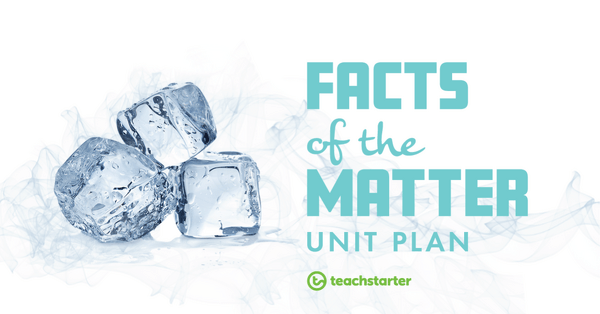
Changing States of Matter
A 60-minute lesson in which students will explore the way solids, liquids, and gases change in different situations.
- Plus Plan
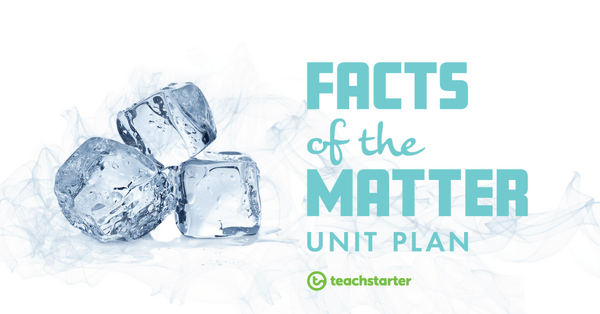
Gases
A 60-minute lesson in which students will observe that gases have mass and take up space.
- Plus Plan
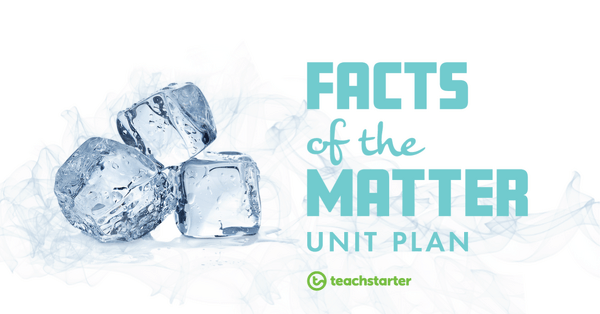
Liquids
A 60-minute lesson in which students will identify the observable characteristics of liquids and how they behave in different ways.
- Plus Plan
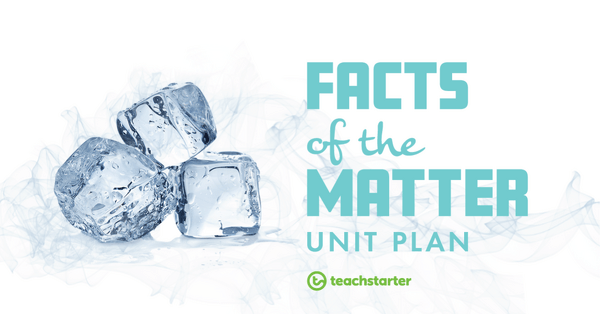
Solids
A 60-minute lesson in which students will identify the observable characteristics of solids and how they behave in different ways.
- Plus Plan
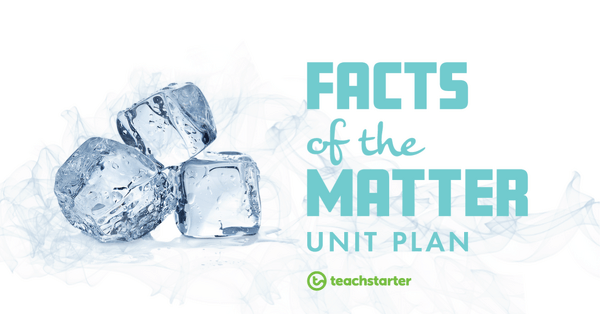
Matter Matters!
A 60-minute lesson designed to introduce students to key terms and concepts related to matter and states of matter.
- Plus Plan
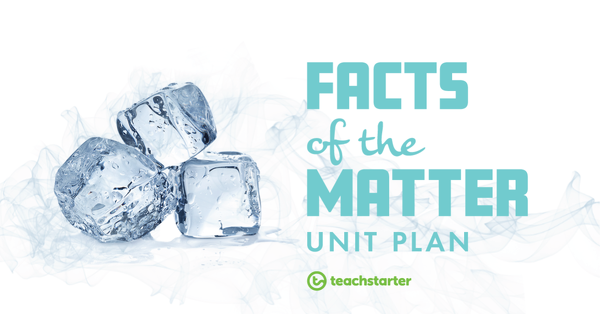
What's the Matter?
A 60-minute lesson designed to activate students' prior knowledge of solids, liquids, and gases.